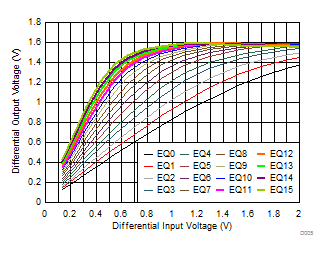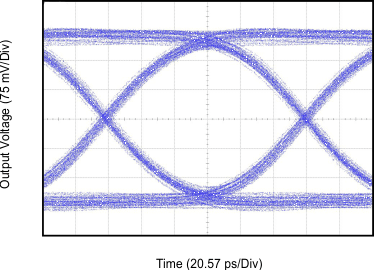JAJSCD2E august 2016 – march 2023 TUSB546-DCI
PRODUCTION DATA
- 1 特長
- 2 アプリケーション
- 3 概要
- 4 Revision History
- 5 Pin Configuration and Functions
- 6 Specifications
-
7 Detailed Description
- 7.1 Overview
- 7.2 Functional Block Diagram
- 7.3 Feature Description
- 7.4 Device Functional Modes
- 7.5 Programming
- 7.6
Register Maps
- 7.6.1 General Register (address = 0x0A) [reset = 00000001]
- 7.6.2 DisplayPort Control/Status Registers (address = 0x10) [reset = 00000000]
- 7.6.3 DisplayPort Control/Status Registers (address = 0x11) [reset = 00000000]
- 7.6.4 DisplayPort Control/Status Registers (address = 0x12) [reset = 00000000]
- 7.6.5 DisplayPort Control/Status Registers (address = 0x13) [reset = 00000000]
- 7.6.6 USB3.1 Control/Status Registers (address = 0x20) [reset = 00000000]
- 7.6.7 USB3.1 Control/Status Registers (address = 0x21) [reset = 00000000]
- 7.6.8 USB3.1 Control/Status Registers (address = 0x22) [reset = 00000100]
- 8 Application and Implementation
- 9 Device and Documentation Support
- 10Mechanical, Packaging, and Orderable Information
6.10 Typical Characteristics









